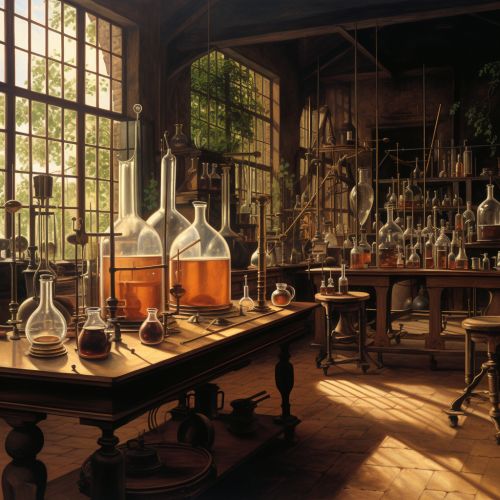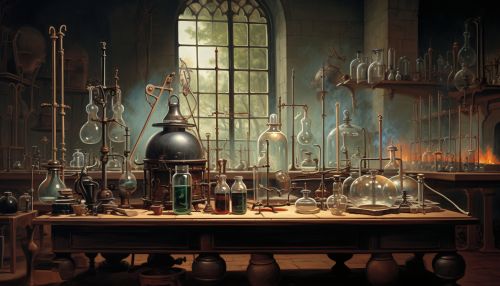Antoine Lavoisier
Early Life
Antoine-Laurent de Lavoisier was born on August 26, 1743, in Paris, France. He was the son of a wealthy Parisian lawyer and was expected to follow in his father's footsteps. However, Lavoisier's interest in science was evident from an early age. He attended the Collège Mazarin from 1754 to 1761, studying chemistry, botany, astronomy, and mathematics.
Career and Contributions to Chemistry
Lavoisier's career in chemistry began in earnest when he was elected to the French Academy of Sciences in 1768. He was only 25 years old at the time, making him one of the youngest members. His early work focused on geology, but he soon turned his attention to chemistry.
Lavoisier is often referred to as the "Father of Modern Chemistry" due to his significant contributions to the field. He is credited with naming oxygen (O2) and hydrogen (H2), and his experiments led to the formulation of the law of conservation of mass. This law states that matter cannot be created or destroyed in an isolated system, a principle that underpins all chemical reactions.
In 1789, Lavoisier published his "Elementary Treatise on Chemistry," considered the first modern chemical textbook. In this work, he proposed a new system of chemical nomenclature, which included the names of elements and compounds that are still in use today.


The French Revolution and Lavoisier's Death
Lavoisier's scientific achievements did not protect him from the political upheaval of the French Revolution. As a member of the Ferme générale, a tax-collecting agency, he was seen as a symbol of the oppressive old regime. Despite his efforts to use his scientific knowledge for the public good, such as improving the French gunpowder production, he was arrested in 1793.
Lavoisier was tried and convicted of conspiracy and tax fraud. He was guillotined on May 8, 1794, at the height of the Reign of Terror. His death was a significant loss to the scientific community. It is said that when Joseph-Louis Lagrange, a mathematician and astronomer, heard of Lavoisier's execution, he remarked, "It took them only an instant to cut off that head, and a hundred years may not produce another like it."
Legacy
Lavoisier's contributions to chemistry have had a lasting impact on the field. His work laid the foundation for the modern understanding of chemical reactions and the principles of conservation of mass. His system of chemical nomenclature has largely remained intact, providing a universal language for chemists around the world.
Lavoisier's life and work have been the subject of numerous biographies and historical studies. His scientific papers and correspondence have been collected and published, providing valuable insights into his research methods and scientific philosophy.
